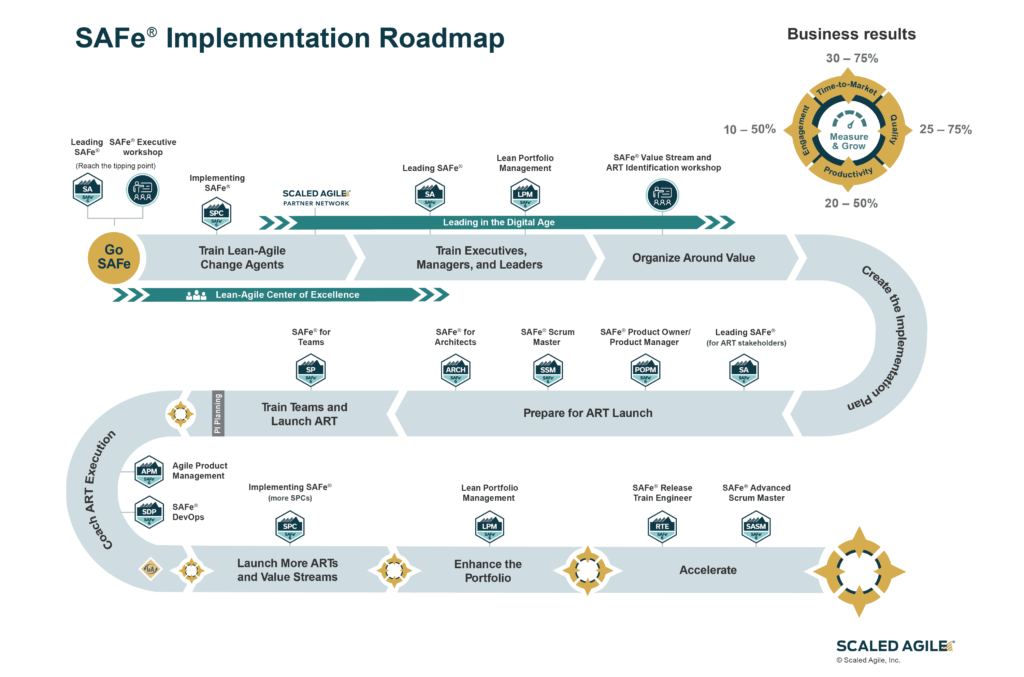Strategic Portfolio Management Glossary
Strategic Portfolio Management Glossary is a curated resource designed to leverage capabilities for strategic portfolio management. This glossary offers concise definitions for essential terms, roles, and acronyms. From embracing Agile Development methodologies to leveraging Virtual Agents for seamless interactions. Infused with the knowledge needed to elevate your strategic portfolio management skills.
A-H Strategic Portfolio Management Glossary
Agile Development: An iterative approach to software development that emphasizes flexibility, collaboration, and customer feedback. The pace, trends and status are available from Agile Dashboards.

Business Planning Portal: A centralized platform used for planning and managing business activities, often including budgeting, forecasting, and performance tracking.
CMDB (Configuration Management Database): A centralized database that contains information about the configuration items (CIs) in an organization’s IT infrastructure.
Demand Management: The process of understanding, prioritizing, and managing customer demands for products or services.
Digital Portfolio Management: The management of digital assets and projects within an organization to achieve strategic goals.
I-O Strategic Portfolio Management Glossary
Innovation Management (Ideation): The process of generating, collecting, and evaluating new ideas or innovations within an organization.
Information Portfolio: The collection of information assets, including data, documents, and other knowledge resources, managed strategically.
Investment Funding: The allocation of financial resources to projects, programs, or initiatives based on their strategic importance and potential return on investment.
Mobile Agent: Software or application designed to perform tasks or provide services on mobile devices.
Now Mobile: A mobile application or platform related to ServiceNow, a cloud-based service management software.
P-R Strategic Portfolio Management Glossary
Performance Analytics: The process of measuring and analyzing performance metrics to make informed business decisions.
Portfolio Management: The strategic management of a collection of projects, programs, or initiatives to achieve organizational goals and objectives.
Predictive Intelligence: The use of data, analytics, and algorithms to make predictions about future events or trends.
Project Management: The process of planning, executing, and controlling projects to achieve specific goals within defined constraints.
Program Management: The coordinated management of a group of related projects and activities to achieve a common goal.
Reports and Dashboards: Tools used to display and analyze data, providing visual representations for better decision-making.
RIDAC: an acronym for Risk, Issue, Decision, Action, and Request Change records.
Resource Management: The allocation and optimization of resources (e.g., personnel, finances, equipment) to support projects and programs.
S-Z Strategic Portfolio Management Glossary

Scaled Agile Frameworks: Frameworks and methodologies designed to scale agile practices to larger organizations.
Scenario Planning: The process of envisioning and preparing for different potential future situations or scenarios.

Scrum Process/Programs: A specific framework and process within agile methodology for managing complex projects, emphasizing teamwork, collaboration, and iterative progress.
Scrum Program Board: Offers visibility into dependencies for scrum planning.

Strategic
- Planning: The process of defining an organization’s long-term goals and determining the best approach to achieve them.
- Spend Tracking: The systematic monitoring and management of expenses in alignment with strategic objectives.
Technology Portfolio: The collection of technology-related assets, including hardware, software, and IT infrastructure, managed strategically.
Test Management: The process of planning, organizing, and controlling testing activities to ensure the quality of software or systems.
Timecard Management: The system or process used to track and manage employees’ time and attendance.
Unified Backlog: Allows management of a consolidated view of workstreams.

Virtual Agent: An automated software program or system that interacts with users through chat or voice interfaces.
Visual Task Board: Lets you view stories on a visual task board for ease of tracking.

Workflows and Integrations: The sequences of tasks and processes, often automated, that facilitate the flow of information and actions between different systems or applications.
Resources
-
Getting Started
- AI: ServiceNow Virtual-Agent Chatbot
- BMC Remedy ITSM Reference
- Burp Suite Professional & Web Security Process
- COE for Human Resources
- Conduct A Windows-Security Scan
- Employee Journey Management ServiceNow
- Getting Started: Engagement Manager
- Introduction to Knowledge Management
- Knowledge Categorization "Find-ability"
- One-IT: Effective Ticket Handling
- Productivity Tips for Knowledge-Users
- Productivity: Service Operations Workspace
- Quick Start Guide
- Service Catalog Order Guides
- Your Next Steps
-
- Advanced Program Management
- AI: ServiceNow Virtual-Agent Chatbot
- Artificial Intelligence A-Z Glossary
- Business Process Optimization Reviews
- Category Hierarchy and Tabs Layout
- Employee Journey Management ServiceNow
- GE Change Acceleration Process
- GRC Managed Risk
- Overview: Employee Center Pro
- Productivity: Service Operations Workspace
- Proper Ticket Handling Imperative
- Public Sector Digital Services
- RIDAC: Strategic Portfolio Management
- SOX Control-Management and Attestation
-
- Articles coming soon
-
FAQs
- Best of ServiceNow Vancouver
- Chat GPT FAQS
- DevOps & Change Velocity
- Enhancing End-User Service Experience
- FAQs: Governance Risk Compliance
- How-To Import ServiceNow Stories 🚀
- Knowledge Categorization "Find-ability"
- Role of CMDB-Management Service-Owner
- Service Catalog Process FAQs
- ServiceNow IRM SOX FAQs
- Strategic Portfolio Management FAQs
- Ticket Handling Infographic FAQs
- Understanding Clop Ransomware Mitigation
- Vulnerability Response Workspace Module
- Washington ESC or Knowledge Portal?
-
- AI & GRC Defense Against Security-Data Breach
- AI and Improved Knowledgebase-Search
- AI Revolutionizes Service Management
- AutomatePro AutoTest Custom-Testing
- AutomatePro AutoTest: Getting Started
- Best of ServiceNow Vancouver
- CMDB Health Dashboard
- Comparing ServiceNow-Strategic-PM to Microsoft-PM
- Demystifying Taxonomy Categorization
- DevOps & Change Velocity
- Efficient Workday to ServiceNow Integration
- Email-to-Incident is Costly Inefficiency
- Enhancing End-User Service Experience
- Financial Services Operations
- Gamifying ITSM Excellence
- GRC Industry Reference Matrix
- Introducing Security Incident Response
- Role of CMDB-Management Service-Owner
- Service Catalog Process FAQs
- ServiceNow Executive Reporting Approaches
- ServiceNow Virtual Agent Chatbot
- SPM Gantt Chart Presentation
- Strategic Portfolio Management FAQs
- Vulnerability Response Test Plan
- Vulnerability Response Workspace Module
- Washington ESC or Knowledge Portal?
- Show Remaining Articles11 Collapse Articles
-
Glossary Reference
-
Blog
- 2021: VP Harris Inauguration Elevates Diversity and Executive Leadership
- 5-Star ITSM Solutions
- 5-Step Policy-Compliance Risk Management
- AI & GRC Defense Against Security-Data Breach
- AI Revolutionizes Service Management
- AI: Knowledge Centered Support
- ChatGPT Ethics and FTC
- CMDB Corporate Governance for Publicly Held Companies
- Community Crisis Resource Reference List
- Covid Cyber Employment Fraud: $Millions in Job Fraud, $Billions in Unemployment Fraud. Recruiters and Jobseekers Paradigm shift
- Does Post Covid Demand, "Evolve or Fold" Data Strategy?
- Financial Services Operations
- Freshwork's Multichannel vision for FreshService (ITSM)
- Gamifying ITSM Excellence
- GRC Industry Reference Matrix
- Imperative: Governance Risk Compliance
- Jobs n Career Success: Employment News
- Microsoft Teams Tripping Transcription Tenancy.
- Predictive Intelligent Situational Awareness
- Remedy to ServiceNow Migration
- Review and Approve Knowledge
- ROI: Demand AI Service Management
- Top Trends in Project Management
- Uber's Call Center Security Social Engineering Massive System Breach
- Vulnerability Remediation RACI
- Walk Up Experience- Design-To-Deliver
- World Talent Economy Forum on Global Competitiveness
- Show Remaining Articles12 Collapse Articles
-
Healthcare
-
Workday
-
Network Connectivity Solutions
-
Business Process Methodologies

